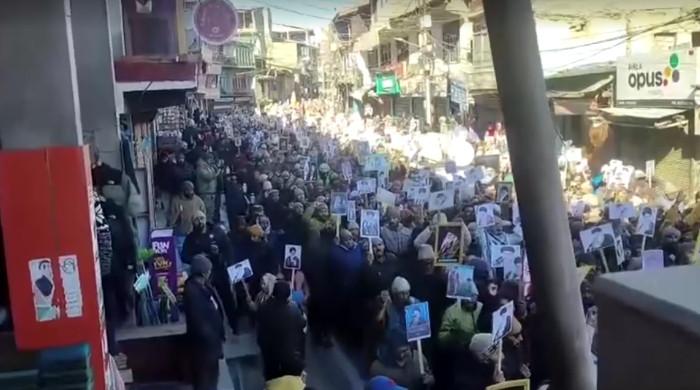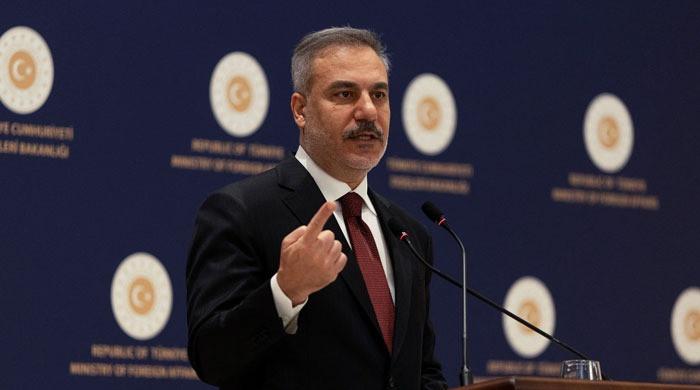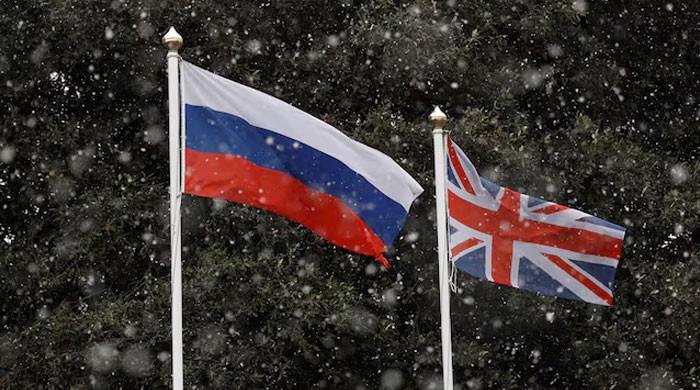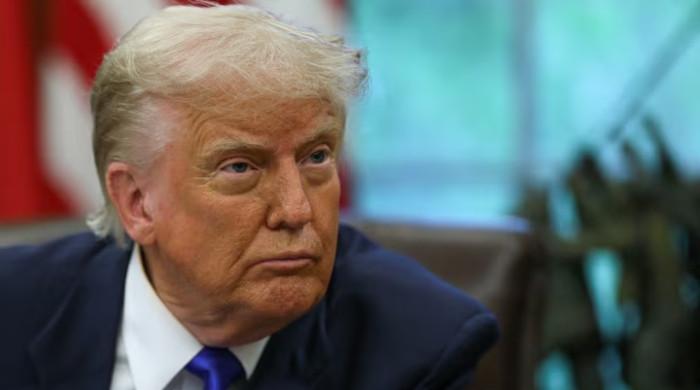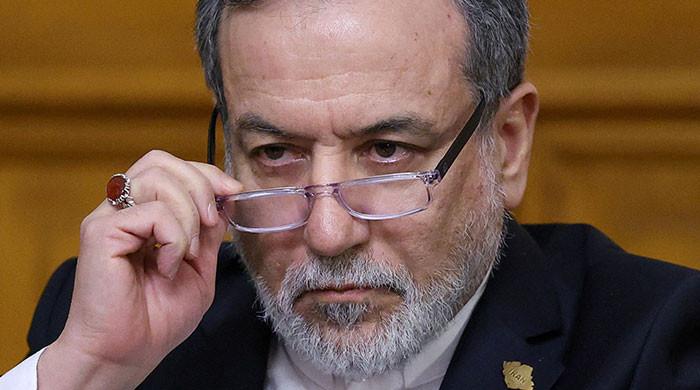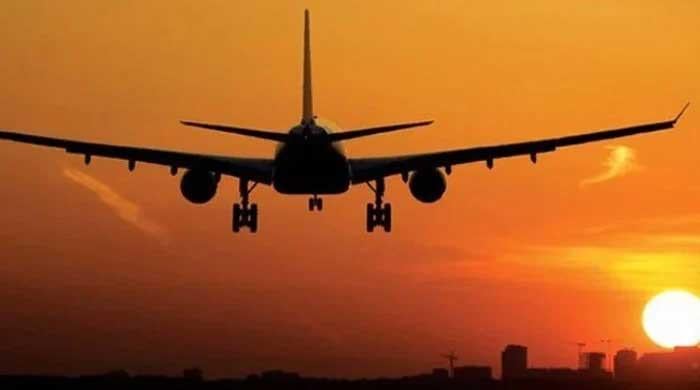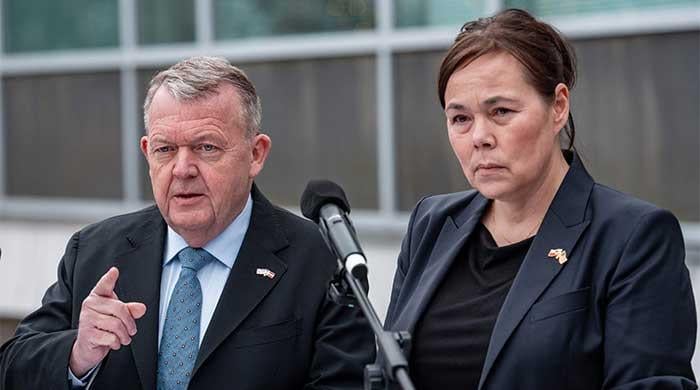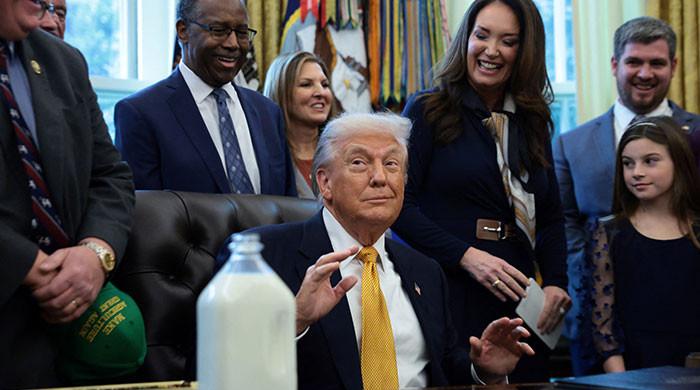Iran says to target US bases if conflict breaks out
“All its bases are within our reach…we will target all of them in host countries”: Iran Defence Minister
June 11, 2025
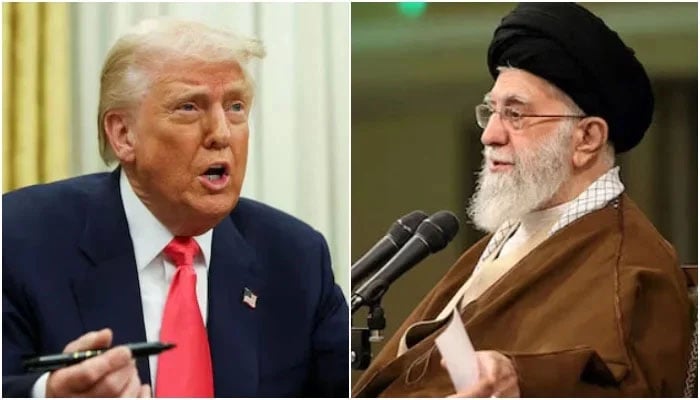
Iran threatened on Wednesday to target US military bases in the region if conflict breaks out, while President Donald Trump said he was "less confident" about reaching a nuclear deal.
Tehran and Washington have held five rounds of talks since April to thrash out a new nuclear deal to replace the 2015 accord that Trump abandoned during his first term in 2018.
Since returning to office in January, Trump has revived his "maximum pressure" campaign on Tehran, backing nuclear diplomacy but warning of military action if it fails.
"All its bases are within our reach, we have access to them, and without hesitation we will target all of them in the host countries," Iran’s Defence Minister Aziz Nasirzadeh said in response to US threats of military action if the talks fail.
"God willing, things won’t reach that point, and the talks will succeed," the minister said, adding that the US side "will suffer more losses" if it came to conflict.
The United States has multiple bases in the Middle East, with the largest located in Qatar.
Iran and the United States have recently been locked in a diplomatic standoff over Iran’s uranium enrichment, with Tehran defending it as a "non-negotiable" right and Washington calling it as a "red line".
Trump had previously expressed optimism about the talks, saying during a Gulf tour last month Washington was "getting close" to securing a deal.
But in an interview published on Wednesday, Trump said he was "less confident" the United States and Iran could reach a deal, in response to a question on whether he believed he could stop Tehran from enriching uranium.
A shame
Iran currently enriches uranium to 60%, far above the 3.67% limit set in the 2015 deal and close though still short of the 90% needed for a nuclear warhead.
Western countries, including the United States and its ally Israel, have long accused Iran of seeking to acquire atomic weapons, while Tehran insists its nuclear programme is for peaceful purposes.
Last week, Iran’s supreme leader Ayatollah Ali Khamenei said enrichment is "key" to Iran’s nuclear programme and that Washington "cannot have a say" on the issue.
During the interview with the New York Post’s podcast "Pod Force One", which was recorded on Monday, Trump said he was losing hope a deal could be reached.
"I don’t know. I did think so, and I’m getting more and more — less confident about it. They seem to be delaying and I think that’s a shame. I am less confident now than I would have been a couple of months ago," he said.
"Something happened to them but I am much less confident of a deal being made... Maybe they don’t wanna make a deal, what can I say? And maybe they do. There is nothing final."
Trump maintained that Washington would not allow Tehran to obtain nuclear weapons, saying "it would be nicer to do it without warfare, without people dying".
On May 31, after the fifth round of talks, Iran said it had received "elements" of a US proposal for a nuclear deal, with Araghchi later saying the text contained "ambiguities".
Iran has said it will present a counter-proposal to the latest draft from Washington, which it had criticised for failing to offer relief from sanctions — a key demand for Tehran, which has been reeling under their weight for years.
On Monday, the United Nations nuclear watchdog began a Board of Governors meeting in Vienna that will last until Friday to discuss Iran’s atomic activities and other issues.
The International Atomic Energy Agency [IAEA] meeting followed a report issued by it criticising "less than satisfactory" cooperation from Tehran, particularly in explaining past cases of nuclear material found at undeclared sites.
Iran has criticised the IAEA report as unbalanced, saying it relied on "forged documents" provided by its arch-foe Israel.




